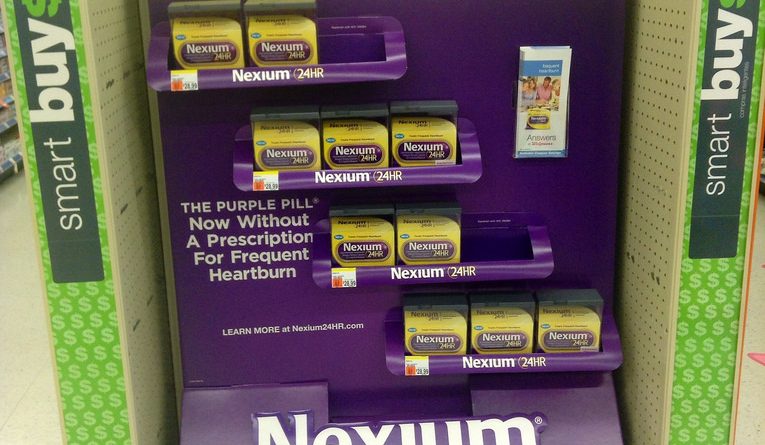Proton-pump inhibitors (also known as ‘PPIs’ and ‘acid blockers) are one of my least favorite medicines.
They are used by more people than they should, and I often see them. I feel that drugs once used in severe stomach conditions, like stomach ulcers or duodenal ulcers, are now being given out as common over-the-counter antacids like Gaviscon or Mylanta. What are the dangers of Proton Pump Inhibitors? Let’s take a look…
A classic case is one of my 40-year-old patients who come to me suffering from severe bloating, constipation, and extremely smelly flatulence. They also have some food intolerances. Their medical records show that they have been taking Nexium (a common PPI) for the past 18 months because of gastro-oesophageal regurgitation (GOERD). Their GP prescribed the medication after the patient complained of persistent heartburn.
The chart shows that this person skips breakfast. Instead, they eat a mid-morning snack of toast or muffin, followed by lunch. They also eat pasta, rice or potato-based meal. Their waistline is large, and their tongues are white.
Low-carb, high-fiber, and low-protein diets are the most common reflux triggers. People in their 40s and 30s have low levels of zinc and antioxidants vitamin B6, B12 and manganese. These are vital for stomach acid production.
Low protein diets can further reduce acid production. (Our stomach has a clever mechanism that cranks acid production when it detects protein.) Carb digestion happens partly in our mouth via exposure to saliva. …), The small intestine absorbs what hasn’t been absorbed (fiber or resistant starch) and then ferments in the large bowel with bacteria.
Low stomach acid is often the cause of symptoms such as reflux. This causes carbohydrate fermentation, which increases pressure on the oesophageal (the valve that separates the stomach and esophagus), causing some stomach acid to regurgitate upwards into the upper esophagus.
WHY DO YOU NEED STOMACH ACID
Our stomachs must be acidic to digest proteins and stimulate the release of pancreatic enzymes. This helps us digest fats, carbohydrates, and protein and kills bad bacteria and parasites we consume daily.
Proton pump inhibitors can cause severe digestive problems, such as gut dysbiosis, small intestinal bacterial growth, nutrient maldigestion and gut inflammation.
HOW DO PROTON PUMP INHIBITORS CAUSE FOOD IntolerANCES?
They prevent the stomach acid from producing any enzymes necessary to digest proteins efficiently. Large protein complexes are found further down in the digestive tract. An inflammed gut can be very porous. This allows unusual protein complexes to move through the gut wall and trigger an inadvertent immune response to food antigens.

